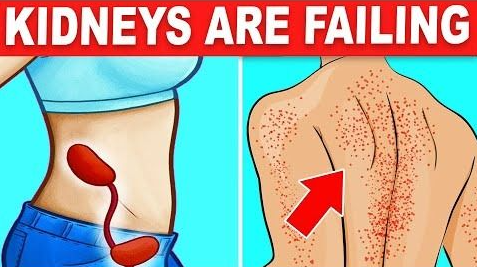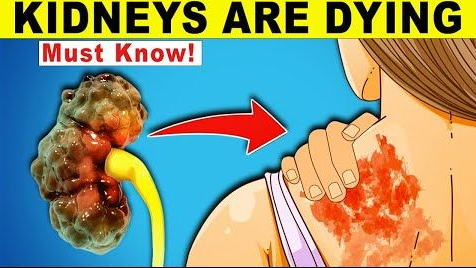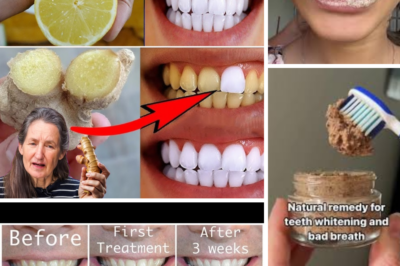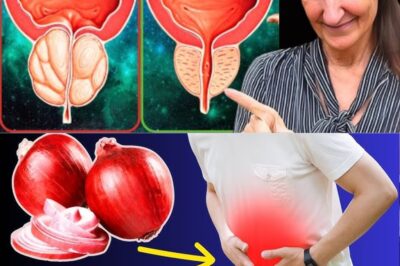10 Warning Signs Your Kidneys Are Begging for Help
Your kidneys are vital organs that work around the clock to filter waste, regulate fluid levels, and maintain a healthy balance of minerals in your body. They also play a crucial role in blood pressure regulation and red blood cell production. When your kidneys start to struggle, the warning signs can be subtle but crucial to recognize. Identifying these early indicators can prevent serious complications and help you take action before it’s too late. Here are ten critical signs your kidneys may be in distress.
2. Blood in Urine Healthy kidneys filter waste from your blood while keeping essential components, like red blood cells, intact. If you notice blood in your urine, it could be a sign of kidney disease, infection, or even kidney stones. Never ignore this symptom, as it can indicate serious underlying health conditions.
3. Foamy or Bubbly Urine Excessive foam or bubbles in your urine may signal high protein levels, which can be an early sign of kidney damage. Normally, your kidneys prevent protein from escaping into your urine. If you consistently notice foam that resembles scrambled egg whites, it’s time to get checked.
4. Swelling in Ankles, Feet, or Hands When kidneys are not functioning properly, excess sodium and fluid build up in the body, causing noticeable swelling, especially in the lower extremities. If you experience persistent puffiness or tightness in your legs, feet, or hands, your kidneys may be struggling to remove waste effectively.

5. Fatigue and Weakness Your kidneys produce erythropoietin (EPO), a hormone responsible for stimulating red blood cell production. When kidney function declines, your body may experience anemia, leading to chronic fatigue, weakness, and decreased mental alertness. If you constantly feel drained despite getting enough rest, your kidneys may be at fault.
6. Persistent Lower Back or Side Pain Kidney infections, stones, or disease can cause discomfort in the lower back or side of the abdomen. If the pain is sharp, severe, or accompanied by fever and nausea, seek medical assistance immediately. Chronic kidney pain should never be ignored, as it could indicate an underlying issue that requires prompt treatment.
7. High Blood Pressure Your kidneys help regulate blood pressure by controlling fluid and sodium levels in your body. When kidney function is compromised, blood pressure can rise uncontrollably. High blood pressure can also worsen kidney damage, creating a dangerous cycle that can lead to kidney failure if left untreated.
8. Trouble Sleeping When kidneys fail to eliminate toxins effectively, waste accumulates in the bloodstream, making it harder to fall and stay asleep. Studies have linked poor kidney function to sleep disorders such as insomnia and restless leg syndrome. If you’re struggling with sleep, it may be worth investigating your kidney health.

9. Metallic Taste in the Mouth and Bad Breath A buildup of waste in the blood, known as uremia, can lead to a persistent metallic taste in the mouth and foul breath that smells like ammonia. This can also cause a loss of appetite, further impacting your overall health. If you notice changes in your taste or chronic bad breath that won’t go away, your kidneys might be to blame.
10. Loss of Appetite and Nausea As toxins accumulate in the body due to poor kidney function, they can interfere with digestion, leading to nausea, vomiting, and a lack of appetite. If you experience these symptoms frequently and without an apparent cause, consult a healthcare professional for evaluation.
How to Support Your Kidney Health Protecting your kidneys doesn’t require drastic measures, but small lifestyle adjustments can go a long way in preserving their function. Here are some simple ways to keep your kidneys healthy:
- Stay hydrated by drinking plenty of water throughout the day
- Reduce salt and processed food intake to ease the strain on your kidneys
- Maintain balanced blood sugar and blood pressure levels
- Exercise regularly to promote healthy circulation
- Avoid excessive alcohol consumption and limit painkiller use
- Schedule routine check-ups, especially if you have a family history of kidney disease
Conclusion Your kidneys work tirelessly to keep your body functioning properly, but when they begin to struggle, the warning signs should not be ignored. If you recognize any of these symptoms, take action before it’s too late. Early detection, combined with a healthy lifestyle, can make a significant difference in maintaining optimal kidney function. Always consult a healthcare professional for an accurate diagnosis and appropriate treatment plan. Taking care of your kidneys today ensures a healthier tomorrow.
News
13 Testosterone-Boosting Foods You’re Not Eating!!!
Testosterone is a vital hormone responsible for supporting muscle growth, maintaining energy levels, enhancing libido, and promoting overall well-being in…
Whiten Your Teeth and Instantly Freshen Your Breath with this Natural Power of Combo!
Whiten Your Teeth and Instantly Freshen Your Breath with the Natural Power of Ginger and Baking Soda A bright smile…
Boost Your Vision Naturally with These Delicious Drinks!
Boost Your Vision Naturally with These Delicious Drinks Having clear and sharp vision is essential for daily life, yet many…
Restore Bladder and Prostate Health Naturally with Onions: A Powerful, Natural Remedy!!!!!!!!!
Restore Bladder and Prostate Health Naturally with Onions: A Powerful, Natural Remedy! As we age, bladder and prostate health become…
The Secret Veggies That Clear Arteries Naturally—What Seniors Were Never Told!
They Never Told Seniors This: Vegetables That Help Unclog Arteries Naturally As we age, maintaining heart health becomes more critical…
The Hidden Leaf That FIGHTS Cancer—Why Doctors Stay SILENT & Barbara O’Neill SPEAKS OUT!
The Cancer-Destroying Leaf Doctors Aren’t Talking About: What Barbara O’Neill Wants You to Know In the world of natural healing,…
End of content
No more pages to load

 And Need To Be Rescued By This Remedy?…..
And Need To Be Rescued By This Remedy?…..










